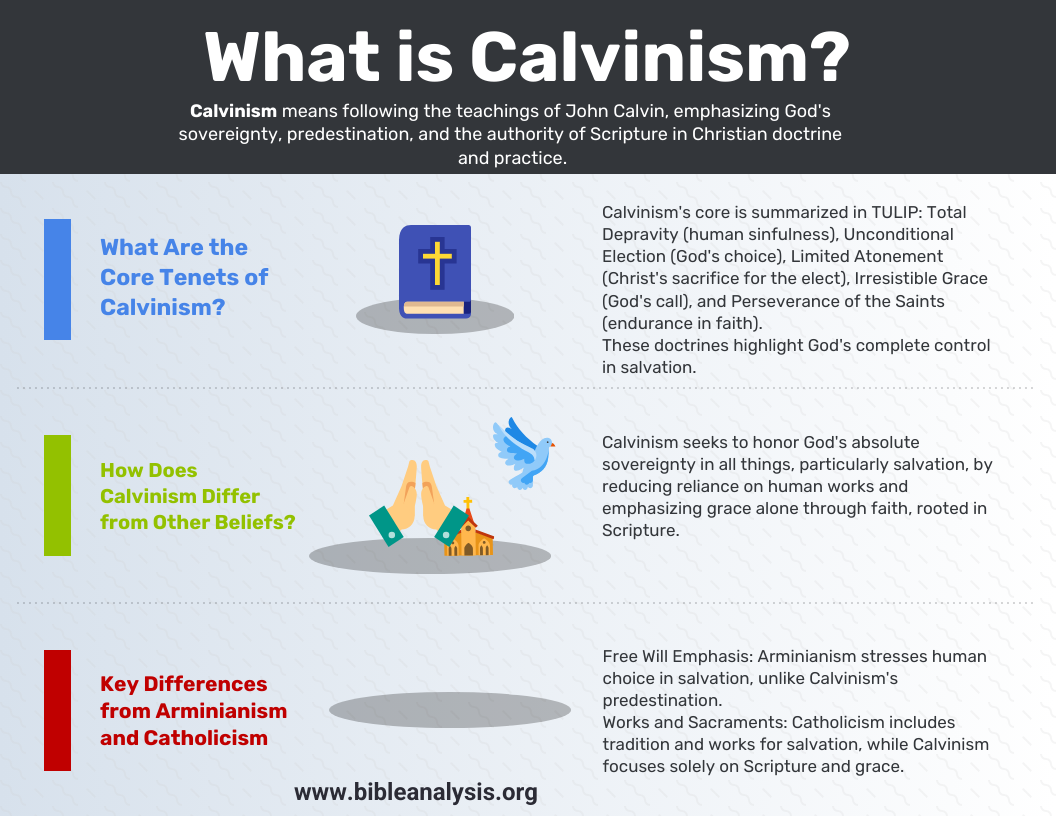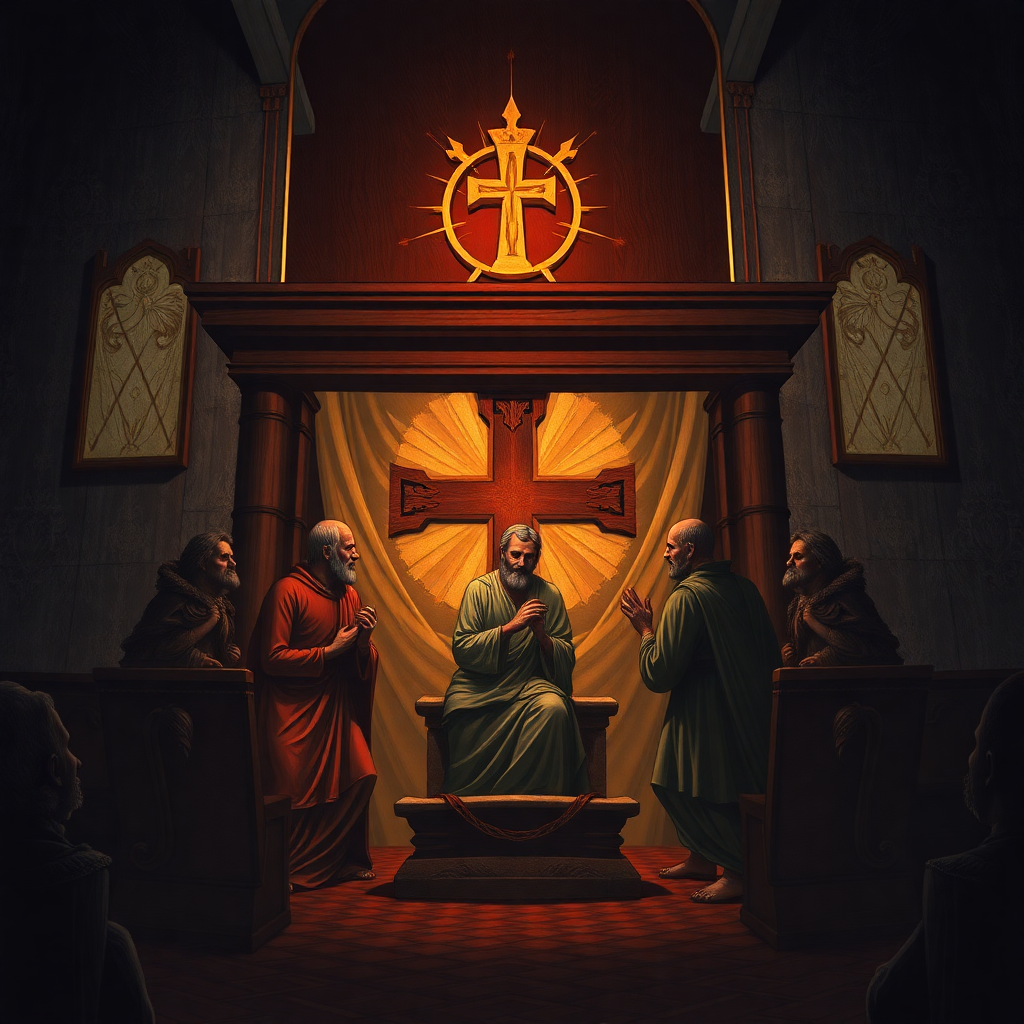What is Calvinism and how does it differ from other Christian beliefs?
According to Calvinism, Christ's atonement is specifically intended for the elect, those whom God has chosen. This differs from the belief in universal atonement, which posits that Christ died for all humanity.
Calvinism is a theological system named after the 16th-century Reformer John Calvin. It emerged during the Protestant Reformation, a pivotal movement that sought to reform the Roman Catholic Church and return to what reformers saw as the pure teachings of the Bible. Central to Calvinism are its doctrines concerning salvation, the sovereignty of God, and the relationship between the divine and humanity. To understand Calvinism thoroughly, it’s essential to delve into its foundational beliefs and how it contrasts with other Christian traditions.

The Five Points of Calvinism
At the heart of Calvinism lies the "Five Points of Calvinism," commonly summarized by the acronym TULIP. Each of these points addresses essential aspects of salvation and divine grace.
- Total Depravity: Calvinism asserts that as a result of the Fall (original sin), every aspect of humanity is affected by sin, leading to an inability to choose God on one’s own. This doctrine emphasizes the need for divine intervention for any possibility of salvation.
- Unconditional Election: Calvinists believe that God, in His sovereignty, has chosen certain individuals for salvation without any foreseen merit or action on their part. This idea stands in contrast to views that suggest human free will plays a role in salvation.
- Limited Atonement: According to Calvinism, Christ's atonement is specifically intended for the elect, those whom God has chosen. This differs from the belief in universal atonement, which posits that Christ died for all humanity.
- Irresistible Grace: Calvinists hold that when God extends His grace to the elect, it cannot be resisted. Those whom God has chosen will inevitably come to faith, driven by His grace.
- Perseverance of the Saints: Once a person is truly saved, they cannot lose their salvation. This doctrine assures believers that their faith is secure in God’s hands.

Historical Context and Development
John Calvin's writings, including his seminal work, "Institutes of the Christian Religion," laid out this theological framework and influenced numerous other reformers and denominations. Calvinism became particularly influential in Geneva, where Calvin served as a pastor, and it spread throughout Europe, particularly in the Netherlands, Scotland, and parts of England.
Differences from Other Christian Beliefs
Calvinism is often contrasted with other Christian beliefs, most notably Arminianism, which arose as a response to Calvinist doctrines. Arminians emphasize the role of human free will in accepting or rejecting God's grace. They assert that Christ’s atonement is universal, meaning it is available to everyone, and that individuals can resist God's grace. This interactive dynamic between divine sovereignty and human agency creates a foundational divide between Calvinism and Arminianism.
Another significant distinction arises when comparing Calvinism with traditional Catholic teachings. While Catholics hold that salvation involves faith and works, Calvinism emphasizes that salvation is by faith alone, through grace alone. This stark difference leads to varying understandings of the role of sacraments and the Church in the salvific process. For Calvinists, the authority of the Scriptures alone (sola scriptura) is central, while the Catholic tradition incorporates both Scripture and Church tradition in its teaching.
The Impact of Calvinism on Society and Culture
Calvinism has had a profound impact on various aspects of Western culture, influencing not only theology but also politics, economics, and social structures. The notion of "the Protestant work ethic," often associated with Calvinism, suggests that a belief in one's calling and the importance of hard work and community responsibility stem from Reformed theology.
Moreover, the emphasis on literacy and personal Bible study in Calvinist communities contributed to the spread of education and the establishment of schools, laying important groundwork for modern education systems. Additionally, Calvinist ideas shaped political thought, particularly in terms of democracy and the role of government, advocating for checks and balances as a reflection of God’s sovereignty over all aspects of existence.
FAQ
1. What is Calvinism?
Calvinism is a theological system named after John Calvin, a key figure in the 16th-century Protestant Reformation. It centers on doctrines about salvation, God's sovereignty, and the relationship between God and humanity.
2. How did Calvinism develop?
Calvinism’s framework was laid out by John Calvin in works like "Institutes of the Christian Religion." It became influential in Geneva and later spread to areas like the Netherlands, Scotland, and parts of England.
3. How does Calvinism differ from Arminianism?
Arminianism, which arose in response to Calvinism, emphasizes human free will in accepting or rejecting God’s grace. It teaches that Christ’s atonement is available to everyone, and that individuals can resist God’s grace, in contrast to Calvinism’s view of predestination and irresistible grace.
4. How does Calvinism differ from Catholicism?
Catholicism teaches that salvation involves both faith and works and values both Scripture and Church tradition. Calvinism asserts salvation is by faith alone, through grace alone, and bases authority on Scripture alone (sola scriptura).
5. What impact has Calvinism had on society and culture?
Calvinism has influenced Western culture, particularly through the “Protestant work ethic,” which values hard work and responsibility. It also promoted literacy and education, contributing to the development of modern schooling, and shaped political ideas about democracy and the role of government.
6. Why is understanding Calvinism important?
Understanding Calvinism helps clarify major divisions within Christianity and sheds light on the development of Western thought, social structures, and religious practices.